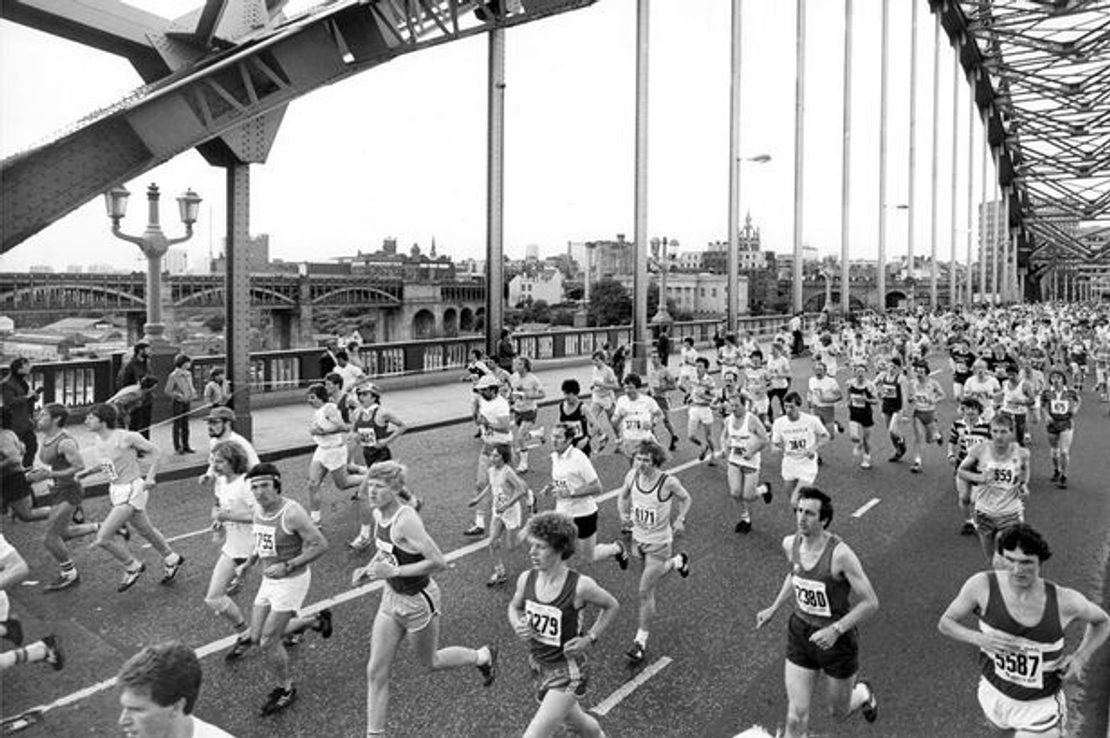
Great North Run- 42 Years of Running
This year, Great North Run celebrates 42 years since its first ever run. Newcastle's now world-famous half marathon first took place in June 1981 when 12,264 people lined up ready to start what was to become an iconic part of sporting history and an integral part of North East culture. As one of the world’s largest races, the Great North Run is a prominent date in the sporting calendar for professional runners, keen racers and have-ago joggers alike. Capturing the Northern Spirit perfectly with its charitable causes and the support of thousands of cheering locals, it’s difficult to imagine what Newcastle and Gateshead would be without it. Even a global pandemic couldn't dampen the charitable spirit, with the race being held virtually before its return in 2021. As of 2023, the race has returned to the famous city to coast route.
History of the Great North Run
The Great North Run itself was inspired by former Olympic 10,000m Bronze medallist Brendan Foster. Foster had taken part in New Zealand’s Round the Bays Race in 1979 and wanted to create a similar fun run experience near his hometown of Hebburn in County Durham. He helped to organise the ‘Gateshead Fun Run’ in 1977, a pioneering event which would pave the way for the Great North Run to become one of the biggest half marathon’s in the world. Starting just outside the centre of Newcastle before crossing the famous Tyne Bridge into the borough of Gateshead, the race passes through some of the region’s most well-known suburbs before reaching the picturesque South Shields coast.
The very first Great North Run race in 1981
The first race took place on 28 June 1981 with over 12,000 runners participating, eventually becoming the largest running event in the UK. The first winner was British former Olympic 10,000m competitor Mike McLeod, who hails from Dilston in Northumberland. He completed the race in an impressive 1 hour, 3 minutes whilst Karen Goldhawk followed shortly behind as the first female winner with a time of 1:17. Alan Robinson also completed the first Elite Wheelchair race that year with a time of 1 hour and 28 minutes; later beaten by current record holders, USA Gold Medallist Amanda McGrory and winning British Paralympian David Weir, both in 2009. Weir completed with a time of 41:34 whilst McGrory crossed the line in 49 minutes, 47 seconds.
Records for the Great North Run have been subsequently broken time and time again by the extended list of professional athletes who have taken part, including the North East’s own football star Kevin Keegan who once famously swore to give 50p to charity for each runner who beat him to the finish line. That year he ran bearing both colours of rival North East Teams, Newcastle United and Sunderland FC finishing respectably in 490th place, resulting in him donating £290 to charity. Another Newcastle football legend, Paul Gascoigne pushed a wheelchair athlete round the entire circuit one year whilst Olympic runner Mo Farrah has also taken part in multiple consecutive races.
Discover more about the first ever Great North Run in 1981 here.
Record breakers at the Great North Run
Britain's Sir Mo Farah has won a record sixth consecutive Great North Run races and won the race in 2019 with an astonishing time of 59 minutes and 6 seconds. In 2023, Mo Farah will run the Great North Run and it will be his last ever professional race.
The Great North Run record for men and women, as it stands, are held by Kenyan runners Martin Mathathi who ran at a phenomenal 58:56 and Mary Keitany respectively who completed the run at 1:05:39.
For the first nine years, eight of the races took place in June before eventually being moved to early Autumn after 1990 meaning that runners could enjoy more gentle temperatures compared to the hot summer climate. Since then, the run has traditionally taken place in September with numbers growing each year.
In 2011, it was reported that 54,000 runners had taken part, succeeding the Gothenburg Half Marathon which had previously held the record as the world’s largest half marathon with 40,523 runners in 2009. In 2014, Tracey Crammond was the Millionth runner over the finish line which was a huge milestone for the event.
David Weir is the fastest wheelchair racer having completed 8 races with a personal best time of 41 minutes 19 seconds while the fastest female wheelchair racer is Martyna Snopek who holds the title with a time of 1 hour 3 minutes and 2 seconds.
What do you want to do?

Loading entries...
















